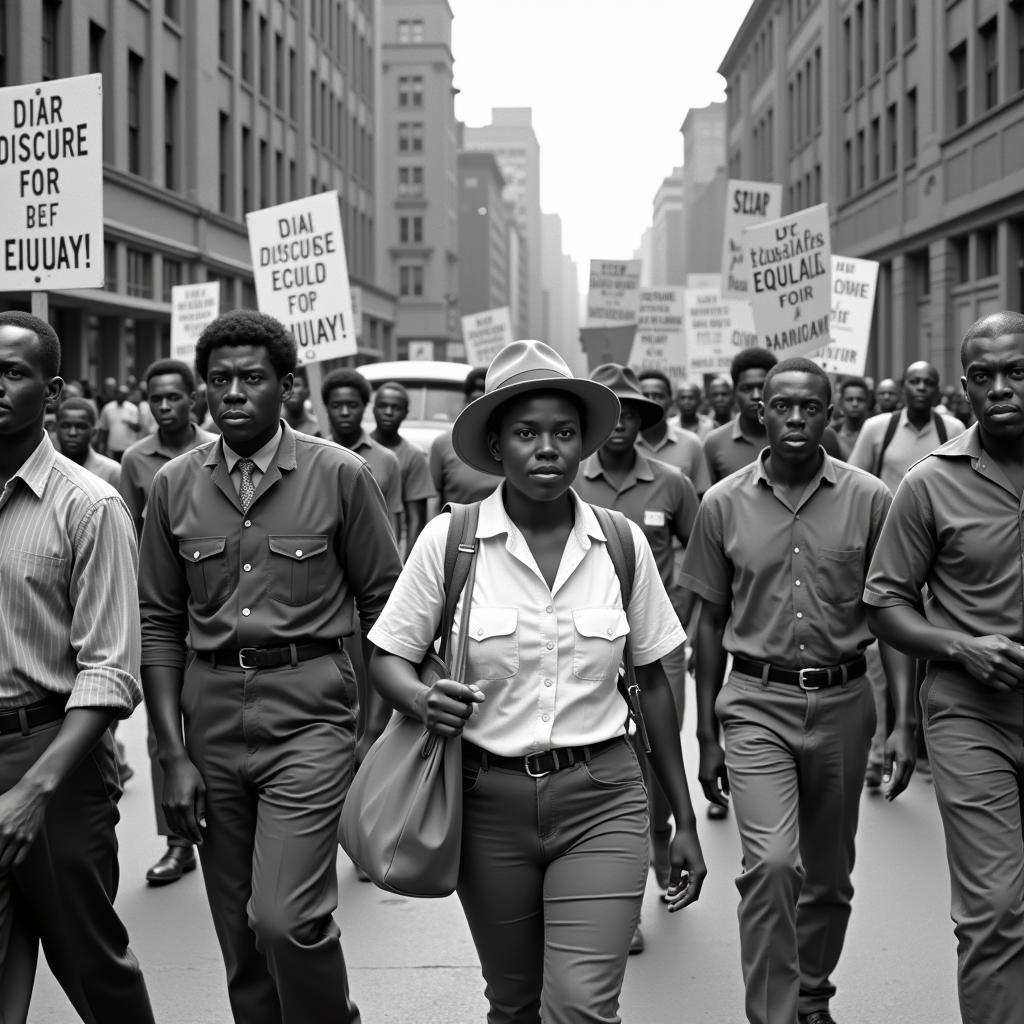The Enduring Legacy of African American Workers
African American Workers have played a pivotal role in shaping the economic and social fabric of the United States, a contribution often overlooked or minimized throughout history. From the brutal era of slavery to the ongoing fight for economic equality, their journey is marked by resilience, innovation, and unwavering determination. This article explores the historical context of their labor, the challenges they faced, and their enduring impact on the American workforce.
The story of African American workers begins long before the founding of the United States, with the forced labor of enslaved Africans who built the nation’s early economy. Their unpaid toil enriched plantation owners and fueled the growth of industries like cotton and tobacco. This exploitation continued for centuries, denying Black Americans basic human rights and economic opportunity. Even after emancipation, African Americans faced systemic discrimination, including sharecropping and Jim Crow laws, which perpetuated economic inequality and limited their access to education and decent work.
Navigating Discrimination and Inequality: African American Workers in the 20th Century
The 20th century witnessed significant advancements in the fight for civil rights, but African American workers continued to confront formidable obstacles. Segregation, discriminatory hiring practices, and unequal pay were commonplace. Despite these challenges, they made significant strides, organizing labor unions, advocating for fair labor practices, and contributing to key industries. African American union workers played a crucial role in advancing workers’ rights and challenging racial discrimination in the workplace.
 African American Workers Marching for Labor Rights
African American Workers Marching for Labor Rights
The rise of industrialization in the early 20th century saw many African Americans migrating from the rural South to northern cities in search of better opportunities. African American industrial workers found work in factories, steel mills, and other industrial settings, contributing significantly to the nation’s economic growth. However, they often faced the lowest-paying jobs and the most dangerous working conditions.
The Struggle for Equal Opportunity: Landmark Legislation and Continued Challenges
The Civil Rights Act of 1964 and the Voting Rights Act of 1965 marked turning points in the fight for racial equality. These landmark legislative victories outlawed discrimination based on race and provided African Americans with greater access to education, employment, and political participation. While these laws significantly improved the lives of many, African American workers continued to face disparities in income, employment, and access to opportunities.
 African American Woman Working in a Factory
African American Woman Working in a Factory
“Despite legal victories, the struggle for economic justice for African American workers continues to this day,” says Dr. Aisha Kenyatta, a leading historian of the African American labor movement. “Disparities in wealth, income, and employment persist, highlighting the need for ongoing efforts to address systemic inequalities.”
From Fields to Factories to Frontlines: The Diverse Contributions of African American Workers
From agriculture to manufacturing to the service sector, African American workers have contributed to a wide range of industries throughout American history. African American social workers have played a crucial role in supporting communities and advocating for social justice. Even during times of war, like African American involvement in WW2, they demonstrated unwavering patriotism and bravery, serving in segregated units and contributing to the war effort on the home front.
“The contributions of African American workers have often been overlooked, yet they are integral to the story of American progress,” notes Dr. Kwame Nkrumah, an economist specializing in labor market dynamics. “Understanding their historical experience is crucial for addressing ongoing inequalities and building a more just and equitable society.”
 African American Workers in a Modern Office Setting
African American Workers in a Modern Office Setting
Looking Ahead: Creating a More Inclusive Future for African American Workers
The ongoing fight for economic justice and equal opportunity requires continued advocacy, policy reforms, and a commitment to creating a more inclusive workplace. Addressing disparities in education, access to capital, and career advancement opportunities are crucial for ensuring that all workers have the chance to thrive. African industries jobs represent a potential avenue for economic growth and empowerment.
In conclusion, African American workers have played a vital role in shaping the American economy and society. Their resilience, determination, and unwavering fight for justice have paved the way for generations to come. By acknowledging their contributions and addressing ongoing challenges, we can create a more equitable future for all.
FAQ
- What were some of the major challenges faced by African American workers?
- How did the Civil Rights Movement impact African American employment?
- What are some key organizations that advocated for African American workers’ rights?
- What are some current disparities that African American workers face?
- How can we promote greater diversity and inclusion in the workplace?
When needing assistance please contact Phone Number: +255768904061, Email: [email protected] Or visit the address: Mbarali DC Mawindi, Kangaga, Tanzania. We have a 24/7 customer service team.
